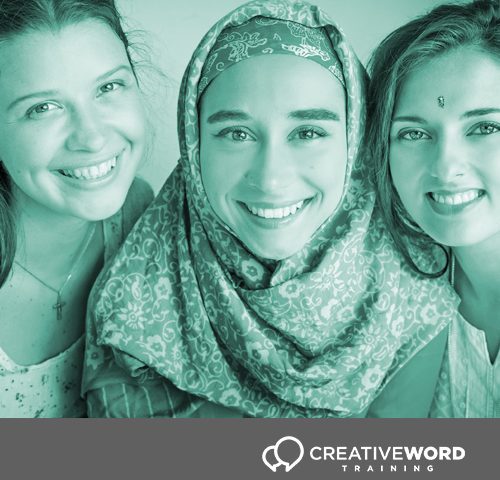
Top 3 Benefits of eLearning within the Workplace
June 23, 2021
Planning for the Future of Professional Learning and Development
July 19, 2021Our world has become much smaller over the last few decades and lawyers are now required to be advocates for people from all cultures, countries and backgrounds, meaning, they must have a high level of cultural competency.
A successful lawyer will need to be well-equipped for dealing with racially and culturally diverse clients, colleagues or professionals.
Cultural competency relates to one’s ability to effectively and successfully interact with people from different cultures. But there is more to it than simply having an awareness of cultural difference.
Full cultural competency comprises four main components:
1. Our ability to understand our own cultural view of the world
2. Our attitudes regarding cultural difference
3. Knowledge of differing cultures and their practices
4. Cross-cultural skills and competencies
Successful lawyers understand that high levels of emotional intelligence and cultural competency can:
• Help develop and improve relationships, (both at work and in our personal lives)
• Aid communication
• Give valuable insights into others’ perspectives
• Encourage beneficial interactions
• Improve understanding of motivations and behavoiurs
• Encourage diversity and inclusion
• Inspire empathy
• Assist with advocacy
• Benefit self-esteem
• Improve career options
How to Achieve Cultural Competency
It is possible we are born with limitless cultural competency, but throughout our formative years, we acquire a sense of ourselves, our family, neighbourhood, culture, and so on, which is linked to our upbring and background.
This provides us with a notion of who we are, where we fit into the world and also influences our views on other cultures, people and places.
Our views and values tend to alter as we grow and develop, and are affected by our life experiences.
However, this does not mean they are permanently fixed once we reach adulthood, nor that we can’t change them or adapt them in order to become a more mindful, conscious and competent human being.
Achieving full cultural competency isn’t necessarily easy but it is possible to learn and so, with practice and patience, we can all become more emotionally intelligent and culturally competent.
At Creative Word Training, we actively seek to raise cultural awareness, improve emotional intelligence and increase cultural competency through our range of soft skills and eLearning courses,
We would encourage everyone to look to develop their skills in these areas in order to promote diversity and inclusion at work, and in everyday life.
To start you off in the right direction, we’ve included a few practical tips below that can help on a daily basis and will encourage beneficial attitudes and perceptions.
1. Think of others as human beings first and foremost, with all the linked emotions, including, happiness, sorrow, pain, vulnerability, fear, and so on. This helps to see them as ‘real’ and encourages empathy
2. Look beyond what you see. Race, colour, body shape, dress size, the way we speak, and even hair colour, can all influence us when we communicate with other people. Try not to make snap judgements about people based on preconceived notions.
3. Try to learn from others, especially if there is something you don’t understand, just ask. Finding out more about someone else (and their culture) can give us new perspectives, insights and understanding.
4. Make new connections (outside your usual groups) so you have the opportunity to meet new people, experience different religions, food, celebrations, perspectives, and so on. If there is a particular culture you’re interested in, try joining a local group linked to that culture, such as, teaching literacy and language skills, advocacy, or a community network.
5. Learn by example. If there is someone you admire for their ability to mix with other people (no matter their skin colour, background or religion) learn from them. Watch how they act around others, how they talk, interact with and share experiences, then adopt some of these skills. It may take a little practice, but with time you’ll learn to master them.
Lawyers wishing to better understand their clients, provide knowledgeable services, and ensure equality, must consider cultural awareness training a part of their essential ‘soft skill’ set and continuing professional development.
At Creative Word Training, we offer exceptional, accredited courses for legal professionals wishing to advance their training in many areas.
For more information on our courses, please click here. Alternatively, you can contact us here to discuss your particular requirements.


